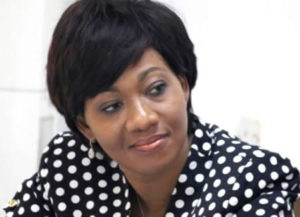EC and stakeholders to discuss reduction in voting time

The Electoral Commission is to start discussions with political parties and stakeholders to reduce the voting duration by an hour, as a proactive measure to reduce tension, suspicion, guarantee the security of ballot papers and electoral officials.
If the stakeholders agree to the proposed idea, voting in 2020 would commence at 0700 hours and end at 1600 hours, instead of the usual time of 1700 hours.
Jean Mensa, Chairperson of the Electoral Commission, said this in an address, at the opening of a three-day workshop aimed at sharing experiences and good practices on the prevention and mitigation of election-related violence on in Accra.
Organised by ECOWAS and the UN, the meeting assembled election experts, civil society organisations and the media, to discuss and suggest solutions to improve and respond to election-related violence, especially from a gender perspective.
The EC Chairperson explained that, the change in time would enable early ballots counting, collation of results, and early declaration of results both at the polling stations and at the national level.
“In past elections, some voters wait until the last hour before casting their votes. It results in long queues, which drag voting time into the night. This has posed and continues to pose a great danger through compromising the security of the ballot and safety of officials,” she said.
Mrs Mensa said the Commission experienced its share of electoral violence since assumption and that it had taken cues from the incidences and had taken initiatives such as, increasing the frequent engagement with the Inter Party Advisory Committee and other dialogue approaches to ensure peaceful and credible election.
She expressed the hope that the recently enacted law banning political vigilantism and it related activities, would reduce from the electoral process.
Madam Sylvia Lopez, the UN Resident Coordinator to Ghana, stated that from 2020 and 2021 there would be 10 elections in the ECOWAS region and asked countries to take and implement effective and efficient steps, to ensure that all the elections are violence-free.
She called on countries to prioritise election prevention and mitigation measures, adding “that electoral violence is easy and could be achieved…but preventing electoral violence requires a well laid out and executed strategies.”
Mr Francis Gabria Oke, the Head of ECOWAS Commission, said the risk of election-related violence was particularly high in countries with systematic, longstanding and unresolved grievances, combined with a “winner takes all” approach to competitive politics.
He said, “an important feature of this broader approach is that it combines what is sometimes seen as merely “technical” electoral assistance on the one hand, and political engagement on the other hand.
While the overriding responsibility for credible and peaceful elections lies with political leaders from both government and opposition parties, Election Management Bodies (EMBs) also have an important role to play.
Source: GNA
